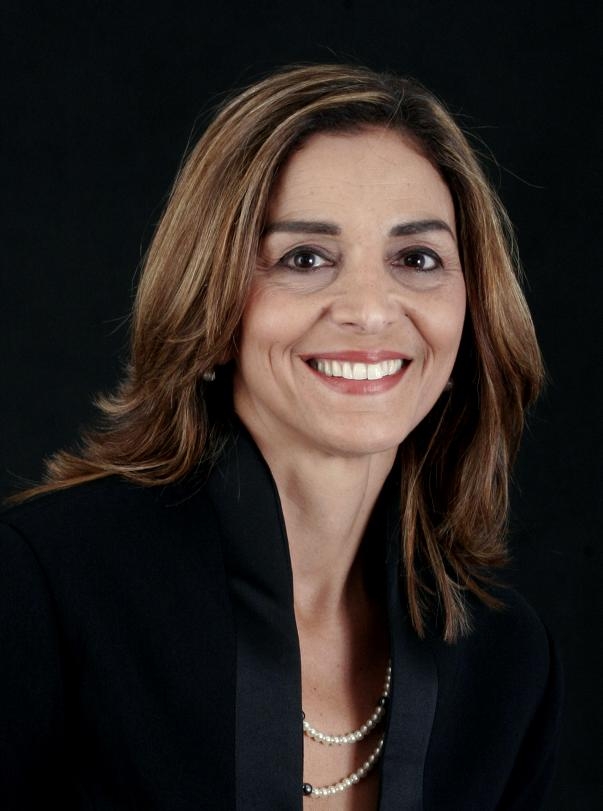|
|
Biography |
|
|
 Katia Chalita is a journalist, consultant in communication and culture, TV anchor and scriptwriter. She graduated in Letters at the Catholic University of Rio de Janeiro (PUC-Rio), with master's degree in Portuguese and Linguistics, and has specializations at the Sorbonne Nouvelle and at the Maison des Cultures du Monde, in Paris, France. She was appointed, since 1999, a member of the Petropolitan Academy of Letters, established in 1922.
She was Secretary of Culture for the city of Petrópolis for two years; Special Advisor to SESC, an important brazilian social and cultural organization; and, for 5 years, Director of the TV, Radio and Cinema Division of Multirio – the Rio de Janeiro City Multimedia Producer.
From 1996 to 2008, she headed and anchored the live TV talk shows Multieducação and Rio, a Cidade! aired in open and subscribers channels.
She was anchor and consultant for the TV programs France Express, Merveilles de France, Front Page and Aventures, and participated in the interview programs Sem Censura, Olhar and Primeiro Time in the Educational TV.
She is currently the scriptwriter and presenter of the cultural and educational TV program Restez Branché! produced and aired by the Ministry of Education’ TV Escola. She is also a MC and mediator in important corporate and public events, conferences and round tables, and is an education, communication, content and media training consultant to corporations and institutions.
For the dissemination of French language and culture and for the exchange between the Brazilian and French cultures, she was awarded the commendation "Chevalier dans l'Ordre des Palmes Académiques” by the French Ministry of Culture. More info at www.katiachalita.com
Katia Chalita is a journalist, consultant in communication and culture, TV anchor and scriptwriter. She graduated in Letters at the Catholic University of Rio de Janeiro (PUC-Rio), with master's degree in Portuguese and Linguistics, and has specializations at the Sorbonne Nouvelle and at the Maison des Cultures du Monde, in Paris, France. She was appointed, since 1999, a member of the Petropolitan Academy of Letters, established in 1922.
She was Secretary of Culture for the city of Petrópolis for two years; Special Advisor to SESC, an important brazilian social and cultural organization; and, for 5 years, Director of the TV, Radio and Cinema Division of Multirio – the Rio de Janeiro City Multimedia Producer.
From 1996 to 2008, she headed and anchored the live TV talk shows Multieducação and Rio, a Cidade! aired in open and subscribers channels.
She was anchor and consultant for the TV programs France Express, Merveilles de France, Front Page and Aventures, and participated in the interview programs Sem Censura, Olhar and Primeiro Time in the Educational TV.
She is currently the scriptwriter and presenter of the cultural and educational TV program Restez Branché! produced and aired by the Ministry of Education’ TV Escola. She is also a MC and mediator in important corporate and public events, conferences and round tables, and is an education, communication, content and media training consultant to corporations and institutions.
For the dissemination of French language and culture and for the exchange between the Brazilian and French cultures, she was awarded the commendation "Chevalier dans l'Ordre des Palmes Académiques” by the French Ministry of Culture. More info at www.katiachalita.com
|
|
|
|
|
|
|
Abstract |
|
|
|
|
|
|
|
|
The main objective of scientific research should be to improve the quality of life of the people and I believe that this is the driver for most researchers. But, why so many findings simply remain in the labs shelves when it could be helping the population?
Science, if it is conveyed properly, can make a huge different in the well being sensation and in the people support for scientific research, mainly in a time where innovation is a recognized must for society.
I intent to discuss the basic requirements for the successful communication; the importance and the need to invest in communication as an instrument for dissemination and for the use of applied science in the day-to-day of the disadvantaged populations; to present some cases of applied science reaching and being adopted by the population in brazil, and my experience as an anchor-woman in a daily talk-show about related issues that interest all the people.
|
|
|
|
|